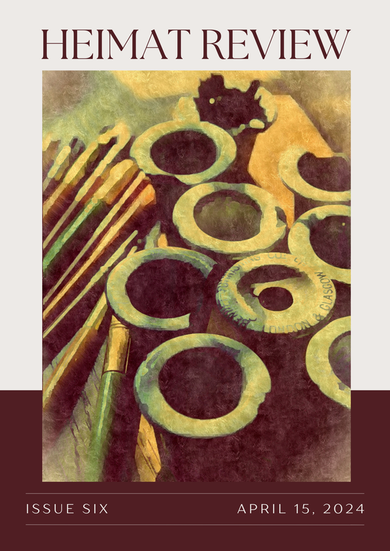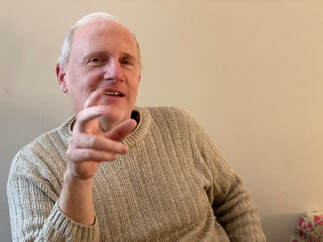Educational Drama
By James B. Nicola
April 15, 2024
April 15, 2024
|
|
Their motives for trying out, varied as
the number in the hall, were never known. Not to themselves, not to each other. But in the end, it was the humpy physics major who got cast, not as Paris (a perfect role for some fit novice), nor as one of the scene-one rowdies who bite thumbs and jeer (all roles optimally served by well-groomed thighs as well)—but Romeo; and Juliet was an acne’d shy thing who’d signed up for the class just for the credit; while it was the serious actors who played Tybalt (who dies early), Benvolio (who’s required to listen to Romeo for several acts), Paris, and Lady Capulet. The Nurse and Friar were four-eyed freshmen, surely virgins, from outside the department, chemistry and anthropology. Lord Capulet, self-styled dweeb, could barely speak! The stars of the department, many, had to dance at the masked ball, dressed down by the swishy Prince (cast sibilant, for the director was a feminist—and Lesbian, some said). And some of them were barely seen again, save for the crowd scenes. Unbelievable. Well, the production seemed so out of whack that the chairman of the drama department dis- invited the respondent from the Kennedy Center and uncast majors sneered; those cast, knew better. But by week two you couldn’t get a ticket. The science majors filled one house, then told their friends who told their friends who told their friends. An article got published, how the play was life itself. The President even came and wept, it was reported. Who cares? More important is what’s happened to the cast in the decades since that destined travesty. The Friar married the Nurse. They’ve seven kids and work together in a research lab testing new cures. The stutterer Capulet’s a senator. Tybalt volunteers vacations for Doctors Without Borders. Of the gangs, two—Balthasar and Samson—work for Greenpeace; Mercutio, Benvolio, and Gregory for Legal Aid; while Paris and the Prince have moved to Massachusetts where they’ve married. Juliet and Romeo have not appeared on stage since then but live in town. Tuesday nights they answer phones for a hotline from 8-12, the calls continuous so neither has the chance to say much else. But I helped out one Tuesday before Christmas, a dark time, and I think I saw them blush when their eyes met between synchronized calls. She is a beauty now. And he is kind. Their voices have grown useful saving lives. And Rosaline, who had no lines to speak in Romeo and Juliet, appears in movies. You would recognize her name. |
~
“Educational Drama” was previously published in Stage to Page: Poems from the Theater (2016, WordTech Communications)
|
James B. Nicola is the author of eight collections of poetry, the latest three being Fires of Heaven: Poems of Faith and Sense, Turns & Twists, and Natural Tendencies. His nonfiction book, Playing the Audience: The Practical Actor’s Guide to Live Performance, won a Choice magazine award. He has received a Dana Literary Award, two Willow Review awards, Storyteller’s People’s Choice magazine award, one Best of Net, one Rhysling, and eleven Pushcart nominations—for which he feels stunned and grateful. A graduate of Yale, James hosts the Writers’ Roundtable at his library branch in Manhattan: walk-ins are always welcome.
|
Author's Note:
Three friends of mine have told me that this is their favorite poem from my collection Stage to Page: Poems from the Theater. I am thrilled and honored to be able to share it with you here in Heimat Review. The American College Theater Festival sponsors regional conventions from participating college drama programs across the country. Winning regional productions proceed to a national event at the Kennedy Center in DC. Every production of a Shakespeare play I have directed has proved to be a life-changing experience in some way. Romeo & Juliet was my first.


